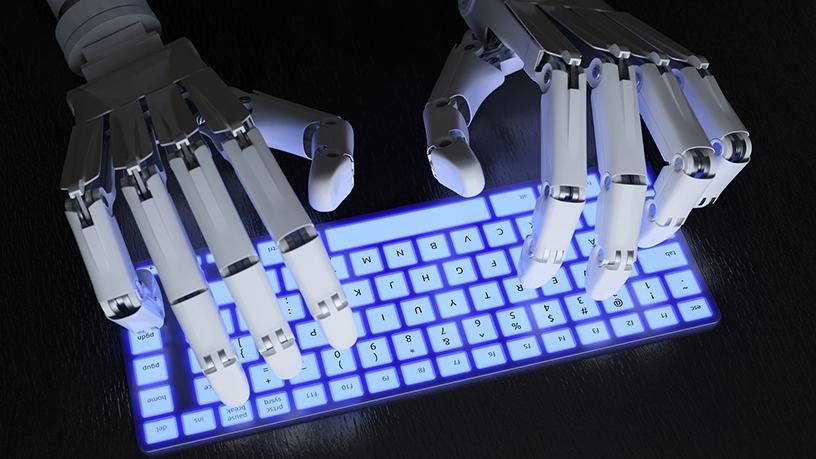
Appropriate application of artificial intelligence (AI) in business has the potential to double SA's economy, adding up to a percentage point to the country's gross domestic product (GDP) rate by 2035.
This is according to the "Artificial Intelligence is the Future of Growth" report conducted by Accenture. The research reveals AI offers local organisations the ability to amplify and transcend the current capacity of capital and labour, to a point where it can propel SA's economic growth rate.
"Due to credit rating downgrades, a volatile currency and lower contributions to the GDP from SA's major economic spinners (the agriculture, manufacturing and mining sectors) the country is experiencing stubbornly high unemployment and anaemic economic growth.
"However, the appropriate application of modern technologies can be an important part of solving many challenges, such as the low skills levels and declining productivity, which are eroding the country's global competitiveness," notes the report.
The unlimited access to computational power, through cloud computing, and growth in big data, new digital technologies like AI are already reshaping the world. Similarly, AI can help SA solve many of its challenges in entirely new ways, and across multiple industries, unlocking the potential to double annual growth rates," notes Accenture.
"South African organisations can no longer depend on increases in capital and labour alone to drive economic growth. They need to also embrace and accelerate their adoption of AI to improve operational efficiencies and margins," explains Dr Caroline Belrose, chief data scientist and MD for Accenture Analytics, part of Accenture Digital.
"The research shows the industries of manufacturing, agriculture and the category including wholesale, retail, accommodation and food services are the local industries that have the potential to benefit the most from AI in future."
The research further shows appropriate application of AI in these top three industries could increase their annual gross value add (GVA) rates by between 1.1% and 1.4%. The next three impacted industries are finance and business, transportation and storage, and utilities, which indicate 1% annual GVA growth potential.
However, to successfully pursue an AI agenda in SA, the authors state policymakers and business leaders must prepare for, and work toward, an AI-enabled future.
"Business and government leaders must understand that AI is not simply another productivity enhancer. Rather, it is a new and discrete factor of production, and a tool that can transform our thinking about how to create growth," it adds.
Human-machine collaboration
A significant part of AI-driven economic growth will come from not replacing labour and capital, but in enabling them to be used much more effectively, notes Accenture.
Key to managing this transition will be successfully integrating human intelligence with machine intelligence, so that they coexist in a two-way learning relationship, ensuring we appropriately reskill workers whose roles are directly impacted by AI technologies.
"In the manufacturing industry, precursors like the Internet of things have started generating the required digital data to enable the application and integration of intelligent systems. In agriculture, multiple AI use cases are emerging, such as predicting environmental impact, monitoring soil and livestock conditions, while retailers can draw on AI's intelligent automation capabilities to streamline inventory and warehouse management," adds Accenture.
As advanced technologies continue to disrupt traditional business models, the future workplace could see the deconstruction of jobs, with man and machine working together across many industries, according to reports.
PwC's "Workforce of the Future" report found that business automation in global organisations will take place in three waves. The first 'algorithmic' wave of automation will affect just 3% of jobs; the more comprehensive second and third waves, leading up to roughly 30% automation, will only take place by the mid-2030s.
According to a Forrester report, titled: "The Future of White-Collar Work", 74% of automation experts believe cognitive computing will usher in a new era of man/machine collaboration, and a further 60% anticipate cognitive will facilitate a shift to more person-to-person interactions.
"These changes will not exclusively impact entry-level workers like back-office clerks and call centre agents; even those at the highest levels of work, from the financial sector to healthcare, will feel the effects of implementing cognitive technologies," notes the report.
According to a report by the World Economic Forum, while there are growing concerns that advances in AI and robotics will wipe out many low and medium skilled jobs in the cities, these positions are no more at risk of automation today than they were a century ago.
"While the potential job losses set out will pose a challenge, history shows cities were exposed to a similar risk of job losses a hundred years ago, resulting from both automation and globalisation. Despite this, most positions have been able to bounce back and grow," the report states.
Share